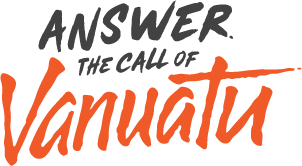Vanuatu is an archipelago rich in cultures and languages. With over 113 distinct languages and numerous dialects spoken across the islands, communication can seem challenging. Yet, one language has emerged as a common bond: Bislama. Born from the linguistic diversity and the history of inter-island trade, Bislama is now the country’s lingua franca, allowing people from different regions to understand each other.
What is Bislama?
Bislama is a creole language, primarily based on English, with influences from French and Spanish. Its name comes from the term "Beche-de-mer", referring to sea cucumber traders who helped spread a form of pidgin English throughout the Pacific. Originally, it was a simplified and phonetic version of English, which gradually evolved into a distinct language.
Although similar to the pidgin languages of the Solomon Islands and Papua New Guinea, Bislama has developed its own features by incorporating many local terms and simplifying grammar. Today, it is spoken and understood by the entire Vanuatu population, even though each island retains its own vernacular languages.
Why learn Bislama?
Traveling to Vanuatu also means immersing yourself in its culture and language. Bislama is more than just a communication tool; it reflects the identity of the Ni-Vanuatu people. Using a few words of Bislama will show your respect for the local culture and will be warmly welcomed by the locals.
The basics of Bislama: Essential words and phrases
Greetings and Polite Phrases
- Hello: Halo
- How are you?: Yu olraet?
- Thank you: Tankio
- Thank you very much: Tankio Tumas
- Please: Plis
- Sorry / I’m really sorry: Sori / Sori Tumas
- I’m happy to see you: Mi glad blo luk yu
- Goodbye: Tata
- See you later: Lukim yu
- I’m leaving now: Ale mi stap ko nao
Useful Travel Phrases
- Where is the hotel?: Hotel e stap weya?
- How much is this?: Hemia hamas?
- I need help: Mi nidim help
- Where are the toilets?: Bathroom e stap lo wea stret?
- Do you speak English?: Yu save toktok English?
- Can you take us to (place name)?: Yu save tekem mifala e ko long (place name)?
- Can I eat this?: Mi save kakae hemia?
Personal Pronouns
- Me / You: Mi / Yu
- Him / Her / It: Hem / Hemia
- We (all of us): Mifala Evriwan
- They / Them: Olgeta
- You (plural): Yufala
Numbers and Time
- One / Two / Three: Wan / Tu / Tri
- Day / Evening / Night: Dei / Sava / Naet
- What time is it?: Wanem time naya?
Characteristics of Bislama
Bislama uses simple words and often groups objects under one term. For example:
- All motorized vehicles are truks
- All birds are pidjins
- All marine creatures are fis
Possessive and associative relationships are expressed using the words blong and long:
- Blong: Belonging to
- Truk blong mi: My truck
- Truk blong mi: My truck
- Long: From, to, in
- Pikinini i go long skul: The child goes to school
- Pikinini i go long skul: The child goes to school
Practical tips for speaking Bislama
Bislama is a phonetic language, meaning words are pronounced as they are written. For example, Halo is pronounced like "hah-loh". Generally, Ni-Vanuatu people appreciate when visitors make the effort to speak their language. A simple "Halo" is often enough to break the ice and start a conversation.
If you’re struggling to understand, don’t hesitate to ask: "Yu save toktok English?" (Do you speak English?) The locals will be happy to help and encourage you to practice.
Discovering Bislama in Vanuatu
To get familiar with the language, visit the markets of Port Vila, where vendors often speak Bislama. You can also find books and dictionaries in souvenir shops. For a complete immersion, attend a local festival where traditional songs and dances highlight the language and culture of the Ni-Vanuatu people.
Don’t hesitate to exchange a few words with locals during your walks. You’ll be surprised how Bislama brings people closer and lets you experience a more authentic side of Vanuatu.

